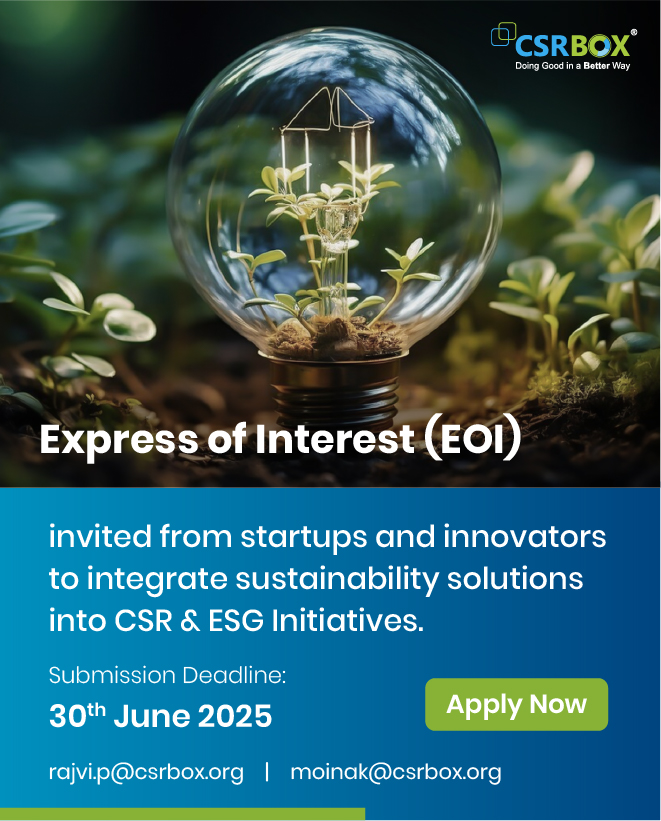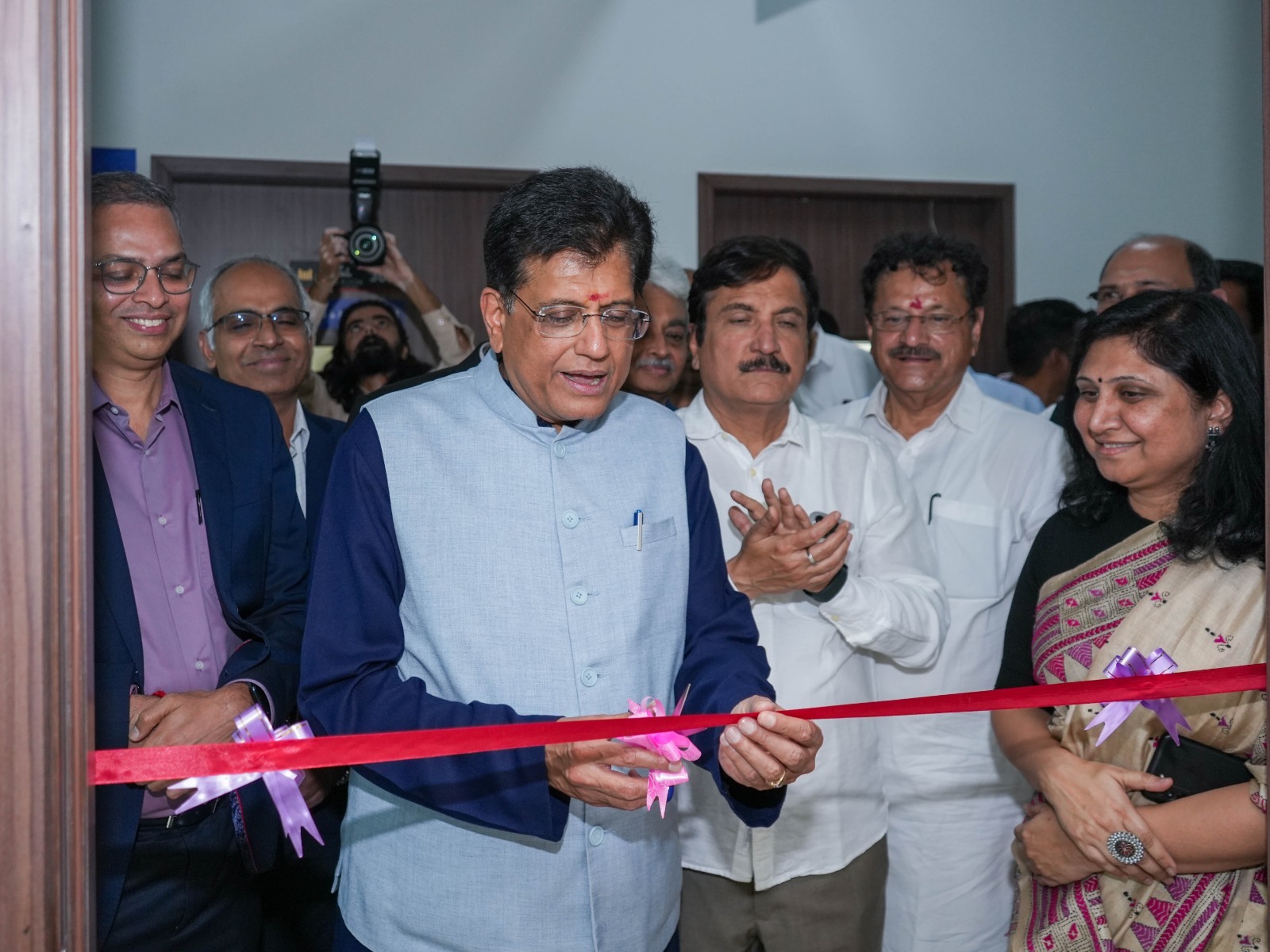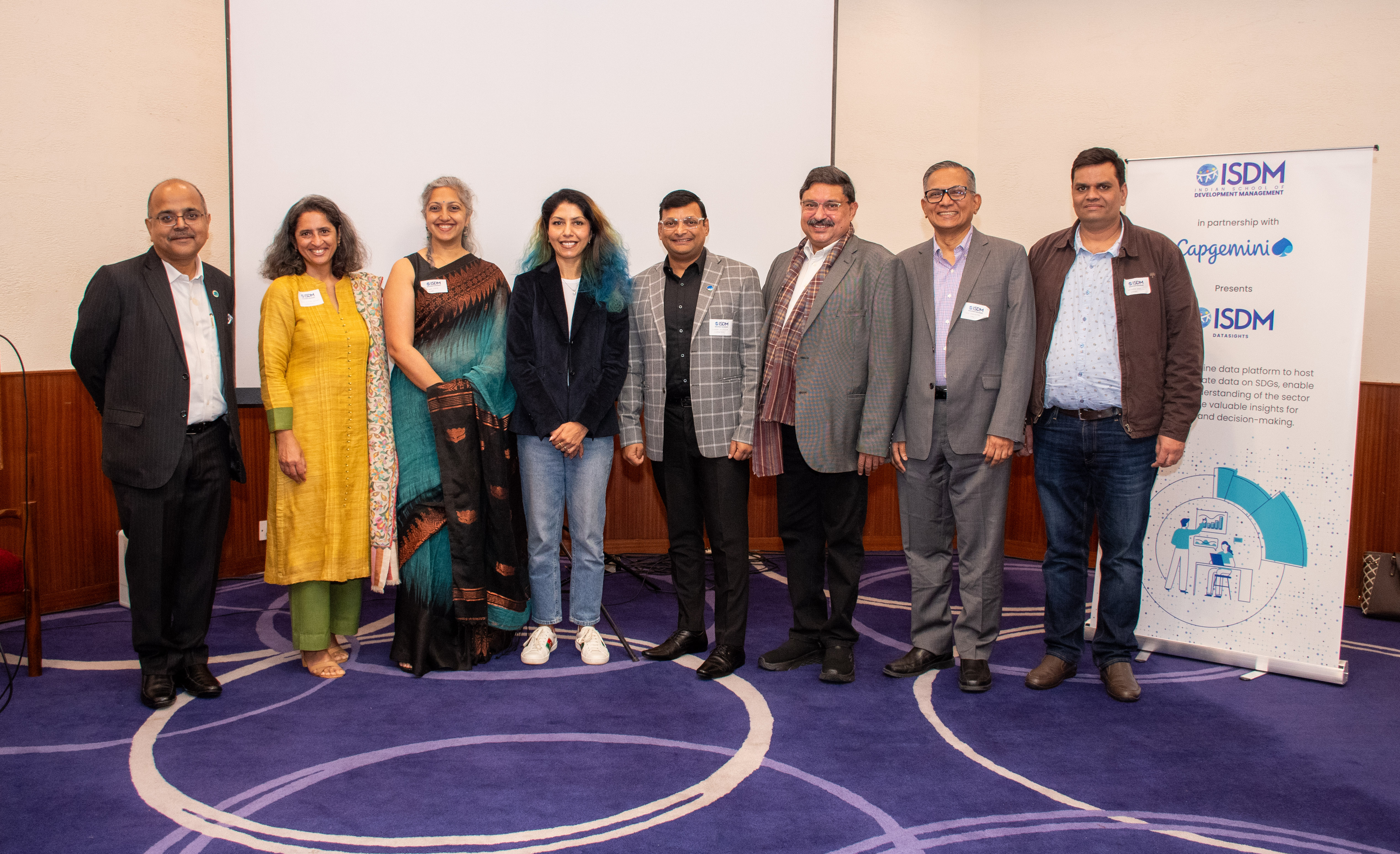Subscribe our Weekly Newsletter
RFP - Conducting a 360-degree Impact Assessment Study

Organization: United Nations Development Programme (UNDP)
Apply By: 02 May 2025
About the Organization
As the lead United Nations agency on international development, UNDP works in 170 countries and territories to eradicate poverty and reduce inequality. We help countries develop policies, leadership skills, partnerships and institutional capabilities to achieve the Sustainable Development Goals. Our work is centred around six core development areas, known as our signature solutions: poverty and inequality, governance, resilience, environment, energy and gender equality.
About the Proposal
Agriculture remains the backbone of India’s economy, with over half of the country’s population relying on it for their livelihoods. Approximately 54.6% of the total workforce is engaged in agriculture and allied activities, and 57% of rural households depend directly on farming for their survival. However, the sector is confronted with numerous challenges, including small and fragmented landholdings, declining productivity, rising input costs, and shrinking farm incomes. These challenges are compounded by the growing impacts of climate change, which further threatens agricultural output and livelihoods.
Shocks to agricultural production have profound socio-economic consequences, affecting rural incomes, the national Gross Domestic Product (GDP), and poverty rates. In response to these challenges, the Government of India (GoI) has introduced key insurance initiatives such as the Pradhan Mantri Fasal Bima Yojana (PMFBY) and the Restructured Weather Based Crop Insurance Scheme (RWBCIS) (hereafter referred to as the "Scheme"). These initiatives are crucial in promoting climate-resilient agriculture by offering farmers financial protection from risks associated with natural disasters, pests, and climate uncertainties. Over five decades, these schemes have evolved to address climate-related financial risks to farmers, providing them with a safety net against environmental shocks.
UNDP’s Country Programme Document (2023-2027) intended outcome 2 states that “By 2027, people will benefit from and contribute to sustainable and inclusive growth through higher productivity, competitiveness and diversification in economic activities that create decent work, livelihoods, and income particularly for youth and women”. UNDP leverages its expertise in systems strengthening to support the Ministry of Agriculture through setting up of Central Program Management Unit (CPMU) for the implementation of PMFBY and KCC, to improve institutional and programme responsiveness, increase coverage and better access among marginalised and excluded farm households, offering innovative measures and support mechanisms for Agri-value chain financing, risk management and reduced crop loss for the rural population in India. The CPMU also focuses on providing Capacity Building and Training support to participating state-level government departments involved in PMFBY and KCC and advancing the scheme among new states for improved uptake
Since Kharif 2016, these schemes have completed 17 crop seasons, settling claims worth INR 1.60 lakh crore for over 620 million farmer applications across 27 states and union territories. Led by state governments and supported by the central government, the schemes have improved through feedback from farmers and other stakeholders. Key enhancements include online enrolment, centralized data management through the National Crop Insurance Portal (NCIP), direct payments to farmers via the Digiclaim module, yield estimation through YESTECH, and the integration of NCIP with state land records. Additional improvements such as the Krishi Rakshak Portal & Helpline (KRPH-14447), the WINDS Manual for weather data accuracy, and the constitution of grievance redressal committees have further bolstered transparency and accessibility.
Despite these advancements, opportunities remain for further refinement, particularly in promoting sustainable agricultural practices. By providing financial risk protection, it is hypothesized that the scheme indirectly encourages adoption of Good Agricultural Practices (GAP) and Climate Smart Agriculture (CSA) techniques, thus enhancing farmers’ adaptive capacity to climate risks. Moreover, by discouraging unsustainable practices, the scheme may also contribute to reducing greenhouse gas emissions from the agriculture sector, further enhancing its climate resilience and long-term sustainability. These factors, in turn, have a direct bearing on ensuring fair premium rates and reasonable claim ratios, critical to the financial sustainability of the scheme.
In view of this hypothesis, on June 6, 2023, the Department of Agriculture & Farmers Welfare (DoA&FW) in partnership with UNDP convened a Consultation Workshop at MANAGE, Hyderabad, engaging industry experts, academic institutions, central research bodies, NGOs, and professionals in crop insurance and climate-resilient agriculture to brainstorm on assessing the impact of schemes in adoption of climate Resilient Agriculture Practices. This workshop facilitated knowledge exchange on product design, premium pricing, and actuarial analysis, forming the foundation for a comprehensive 360-degree impact assessment of the PMFBY and RWBCIS schemes. This Impact Assessment aims to capture the broader socio-economic and environmental impacts of these schemes in a three-dimensional aspect. Therefore, DoA&FW with support from UNDP has developed a concept note and Terms of Reference for a comprehensive 360-degree impact assessment titled, ‘’Socio-Economic and Environmental Impact and Climate Resilience Assessment Study of Crop Insurance Schemes in India (Pradhan Mantri Fasal Bima Yojana (PMFBY) & Restructured Weather Based Crop Insurance Scheme (RWBCIS).’’
The basic objective of this Impact Assessment is to appraise on the fulfilment of the objectives of the Schemes in terms of socio, economic and environmental impacts / benefits on the lives of the farmers and national agriculture ecosystem. To support and collaborate with this Impact Assessment study at National and International levels, DoA&FW with support from UNDP had a series of brainstorming
discussions and deliberations with premier Research and Academic organisations, having background and proven track record in similar Impact Assessment of the Government Schemes and Programs. The purpose of this national and/or international collaboration is to establish a good methodology and strategy for conducting the Impact Assessment on a global standard and to showcase the scheme innovations and effectiveness as a knowledge outcome for the review and evaluation by Governments and development/Policy planning agencies at National and Global level.
Government of India is a member of the Financial Resilience in Agriculture (FRA) Community of Practice (CoP) which is a part of UNDP’s IRFF (Insurance and Risk Finance Facility). UNDP India with support from DoAFW and IRFF-FRA’s initiative hosted the launch and first annual event in Goa in April 2024 for cross country knowledge sharing on best practices. As a member, the interested countries can tap into the resources of the FRA Global Platform, which includes impact assessment methodologies and other research tools. In addition, FRA is also being implemented in India under the collaboration between UNDP India and UNDP IRFF. See more information on FRA on this link.
In view of the intent of India to develop a global knowledge product for the conduct of Impact Assessment under FRA, UNDP is eager to support DoA&FW to design and implement a 360-degree impact assessment. It is expected that the 360-degree Socio-Economic and Environmental impact assessment will support for both the extension of the scheme for upcoming years and enhancing evolution through policy level and technology interventions to make the scheme future ready and more resilient to the changing requirements of agriculture ecosystem. It is also expected that this will benefit other members of the FRA Community of Practice, mostly Governments from the Global South, who are currently also looking to implement an impact assessment of their national agriculture insurance programmes (e.g. Government of Uganda).
Geographic Focus
- The geographical focus of this Impact Evaluation assignment will be Pan India – states implementing PMFBY-RWBCIS. Approximately 100 districts (refer to Appendix to Section 5 – Terms of Reference).
- A considerable representation of non-implementing States (Bihar, West Bengal, Punjab, Nagaland and Gujarat) should also be included in sampling to get a comparison of impact on the implemented and non-implemented States.
Objectives
- Conduct a well-defined and comprehensive 360-degree impact assessment on PMFBY and RWBCIS schemes: With a focus on the broader socio-economic and environmental impacts of the scheme at the farmer level and submit report with observations, inferences and recommendations to Government of India on achievements and for improvements in these sectors.
- Develop a robust Methodology: Develop a globally applicable impact assessment methodology that can serve as a tool for other countries that are looking to evaluate the impact of their national agricultural insurance programs and schemes. This methodology will ensure to capture both direct and indirect impacts across various domains, including economic stability, environmental sustainability, climate resilience, gender and other social inclusion, and adoption of climate smart agriculture practices.
- Evaluate Effectiveness and Access: Analyse and appraise the Schemes effectiveness from implementation on meeting the intended objectives for the past seasons in supporting sustainable agriculture and food security in India including income stabilisation, risk reduction, farmer outreach, farmer distress reduction, discourage migration, continuity and improvement in agricultural practices and overcome climatic risks affecting their crops and livelihoods with respect to Social, Environmental Standards (SES) compliance of the Scheme with respect to the Operational Guidelines and implementation strategy of both the Schemes.
- Identify the Gaps and Suggest Recommendations: Identify and highlight the gaps in achieving the Scheme objectives and provide actionable recommendations to Government of India for the next generation crop insurance scheme in order to improve the objectives, operational efficiency, targets and resilience.
- Create a Framework for Impact Reporting: Develop a systematic approach for presenting the results of the impact assessment in a way that is accessible and actionable for the stakeholders and crop insurance industry. This evaluation would provide quantitative and qualitative data covering key areas related to governance, implementation, and uptake behaviour among the farmers as well as policy suggestions for better functioning of the program.
- Dissemination of the Outcomes: Publish authentic and scientific Research papers, Reports, Policy Briefs, Good practices, Case Studies etc. from the Scheme for improvisation of crop insurance schemes vis a vis climate resilient sustainable agriculture practices as a knowledge product for global markets.
Scope of Work
The scope of work for the service provider will include but not be limited to:
This assignment will build on the ongoing implementation assessment conducted by Department of Agriculture & Farmers Welfare (DoA&FW), Govt. of India with support from UNDP India, through its internal evaluation systems and IRFF-Financial Resilience in Agriculture (FRA) Initiative at the global level. (PMFBY website Reports Section https://pmfby.gov.in/compendium-files.)
FRA, in collaboration with Wageningen University and Research, from the Netherlands is conducting a global assignment to produce an overview of the available evidence related to the impact of agricultural insurance. The impact evidence will touch upon the impact of agricultural insurance on the different relevant development outcomes, such as climate adaptation, farmer resilience, investment security, as well as the supportive domains of enabling environment for ag-insurance, business model innovation and market foundations. This research will also include a methodology and general framework for the development of a Monitoring and Evaluation (M&E) and/or Impact Assessment tool to assess the role of agricultural insurance in achieving top national priorities and development outcomes.
In addition to the defined and structured objectives and outcomes / recommendations of the study being conducted through Wageningen University as mentioned above, the scope of the study is further extended to the following major assessment areas as well:
- Assess wider socio-economic and environmental-climatic resilience impact the Crop Insurance Program (PMFBY) has created amongst the farming community in implementing states in India
- Assess trends in regional climate changes of selected regions and their impact on agricultural production practices for four major crops: paddy, wheat, soybean and cotton. These four crops constitute roughly 60-65% of PMFBY coverage.
- Identify region and crop specific non-preventable perils (such as cyclones, storms, hail, pest attacks, floods, deficit rainfall, excess or deficit temperature, humidity, frost, wind speed etc.) which are responsible for production losses and estimate the variability of the losses at the farm or cluster of farms level.
- Study the influence of crop insurance on land use changes, crop diversification, cultivation practices, soil health management, water conservation, agrochemical usage and post-harvest management using a climate resilience assessment methodological framework.
- Understand the availability and accessibility of climate smart and good agricultural practices for the specific selected regions and crops and the challenges around access and use.
- Assess the Climate Resilience of Agriculture as a result of access to crop insurance schemes and climate smart and good agricultural practices around.
- Perceived resilience: How farmers’ economic wellbeing, financial security and resilience to potential future shocks has evolved and changed.
- Realized resilience: Farmers who have experienced climate adversity, how the scheme impacted them.
- Resources and enablers: Changes in farmers’ access to climate smart and good agricultural resources and enablers
- Identify the role of premiums and timely settlement of claim in promoting good agricultural practices, climate resilient crops, organic and natural farming.
- Understand the role of insurance and crop suitable farm management practices in the conservation of local ecosystem and biodiversity.
- Explore the inter-linkages between crop insurance, good agricultural practices and sustainable agriculture with the help of case studies.
- Identify way and means to outreach the farmers, the modes of capacity building and awareness which are best suited for rural households
- Identify the incentives which work for farmers to encourage them to seek insurance protection.
Deliverables
This assignment seeks to produce the following deliverables:
- Inception Report: With detailed, tools, sampling pattern, timeline and roll out plan, followed by first Consultation Workshop.
- Approval of Inception Report: on taking inputs from first Consultation Workshop, Inception Report will be fine-tuned and approved. Approved Inception Report will have detailed technical methodology and progress being all along the implementation phase (field assessments, manpower deployment, data collection, data analytics, major observations, inferences and basis for formulation of recommendations, etc.), followed by second Consultation Workshop.
- Survey and Initial Appraisal Report: The Mid Term Report containing the progress of Surveys, Sampling Procedures, Initial Appraisals etc.
- Draft Socio-Economic and Environmental Impact and Climate Resilience Assessment Report containing final Impact Assessment Framework, Analytical data, major recommendations etc. This report should capture the journey of the Government of India in designing, implementing and showcasing a 360-degree impact assessment for national agriculture insurance programmes, that can be adopted by other countries.
- Final Socio-Economic and Environmental Impact and Climate Resilience Assessment Report with an additional Policy Brief with suggestions, recommendations and implementation roadmap for development of a universal and inclusive agri-insurance framework that have been implemented in India with its Best Practices in areas of Technology interventions, Stakeholder Engagement and farmers satisfaction. This should be followed by third Consultation Workshop involving major stakeholders.
- At least two Peer-reviewed journal article/s with due acknowledgement to the stakeholders involved.
How to Apply
Deadline: 02-May-25 @ 06:00 AM (New York time)
For more information please check the Link
Stay in the loop with the newest RFPs and Grants through NGOBOX's WhatsApp Channel. Join now by clicking here!
Latest Online Store
Latest Grants
Latest News
© Renalysis Consultants Pvt Ltd


























